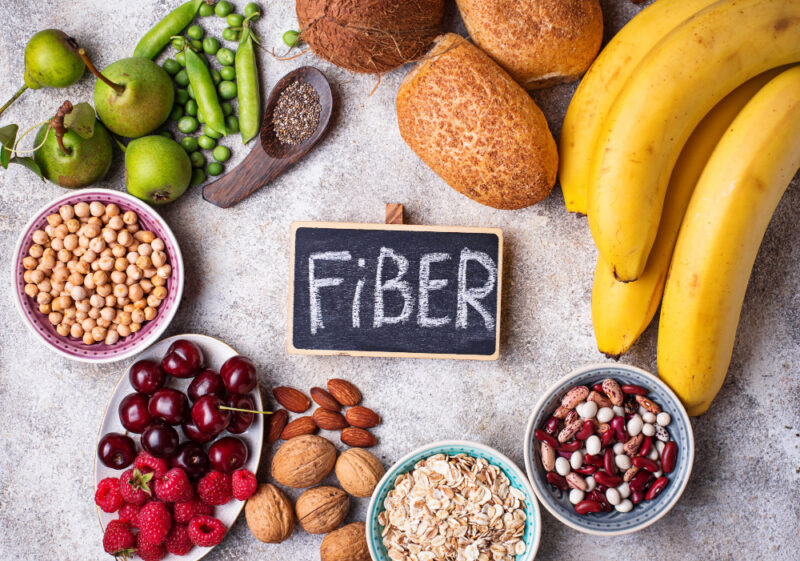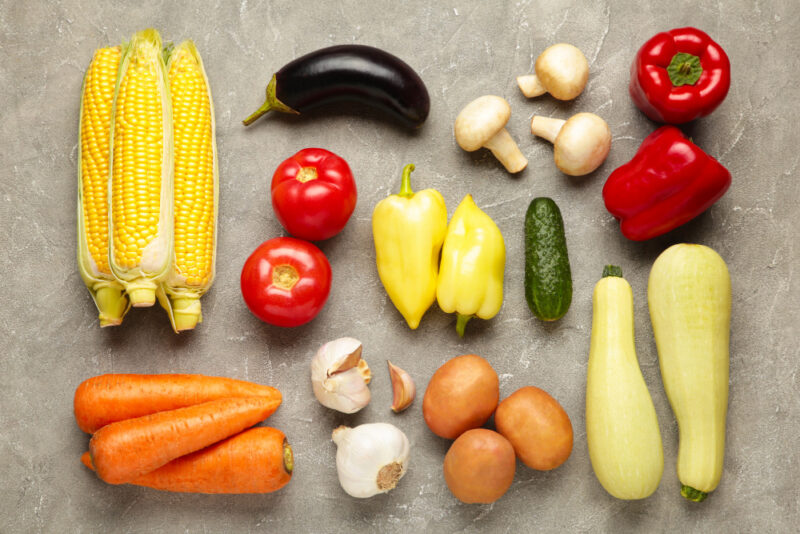When your gut is healthy and happy, then your whole body starts functioning optimally
Having a ‘gut feeling’ is not uncommon for most of the human population. We tend to feel emotions in our physical bodies – mainly the gut. It’s no surprise that looking after your gut can lead to happiness.
Our gut isn’t only a place for all our food; research tells us there is a powerful or seemingly invisible connection between our brain and gut.
When our gut health is off balance, that throws out our brain functioning and possibly many other aspects of our bodily function. The line between our brain and gut is called the gut-brain axis.
Our gastrointestinal lining has millions of neurons, which connect our brain through the nerves in the nervous system.
One of them is called the vagus nerve.
What is the vagus nerve?
The vagus nerve, the tenth cranial nerve, is a critical component of the gut-brain axis and plays a vital role in maintaining gut health. It is the longest cranial nerve in the body and serves as a communication pathway between the brain and various organs, including the gastrointestinal (GI) tract.
The primary function of the vagus nerve in gut health is to regulate the parasympathetic nervous system, also known as the “rest and digest” response. Activation of the vagus nerve promotes relaxation, stimulates digestion, and enhances nutrient absorption. It also plays a crucial role in modulating inflammation and maintaining the balance of the gut microbiota.
Research has highlighted the significance of the vagus nerve in maintaining gut health and its impact on various aspects of digestion. Here are some studies that support these claims:
A journal “Frontiers in Neuroscience” study investigated the vagus nerve’s role in regulating gut inflammation.
The researchers found that activation of the vagus nerve through electrical stimulation reduced inflammation in the gut and improved symptoms in animal models of inflammatory bowel disease. The study highlighted the anti-inflammatory effects of vagus nerve stimulation on gut health.
Our vagus nerve sends signals back and forth between the gut and our brain. Our GI tract has trillions of different bacteria, which govern our immune function and inflammation.
Our gut bacteria expel chemicals that have an impact on our brains.
It’s essential to understand that our gut bacteria manufacture 95 per cent of our body’s supply of serotonin – the hormone that makes us happy!
Research is still uncovering how we can best understand digestion and thinking capacity.
A fascinating emerging field is called nutritional psychiatry, which links food to the state of our mental health. There are so many ways to look after your gut to ensure a more seamless connection between your brain and gut (as well as bring on a lot more serotonin to make you smile!).
Here are four simple and effective ways to continually nourish your gut health
One: Drink lots more water
Water isn’t only helpful for hydration and helps get things moving in your gut. Nothing is worse than constipation, which can affect your mood and energy levels.
Drinking more water helps keep those bowel movements regular because a build-up can cause the poop to ferment and cause discomfort. How much you drink will depend on your body type and the temperatures during your current climate.
I aim to drink three litres daily and stay accountable by having a large bottle with me at all times (1.5 litres). That size helps me realize how much I am drinking and ensures I always stay hydrated.
It’s easy to forget when you are busy or lose count of the times you fill smaller bottles. Save your brain power for more important things and get a giant jug.
A study published in the European Journal of Clinical Nutrition investigated the effects of water supplementation on gastrointestinal function in healthy individuals.
The researchers found that increasing water intake significantly improved bowel movements and relieved symptoms of constipation. Adequate hydration helps soften the stool, allowing it to move smoothly through the digestive system and preventing discomfort.
Water is essential for our overall health, and its importance in maintaining gut health cannot be overstated. A study published in the journal “Frontiers in Nutrition” highlighted the role of water in promoting regular bowel movements and preventing constipation.
Inadequate water intake can lead to dehydration, affecting stool consistency and hindering smooth bowel movements.
By drinking an adequate amount of water, you can ensure that waste material moves through the digestive system efficiently, preventing discomfort and promoting a healthy gut.

Two: Fiber is your gut microbiome’s best friend
We can get so much fibre from different foods daily – although it’s important to know the difference between them. I say this because some help binds with food and help flush it out of your system.
That creates regular bowel movement, which requires a healthy gut. Fibre is abundant in most fruits and vegetables, including nuts and legumes.
We must consume all different types of food to give our gut bacteria plenty of additional nutrient value (as well as our bodies). Habits like these build a very diverse microbiome.
A diverse microbiome helps you absorb your food better, increase overall health, and improve your brain health. If adding more fibre makes your GI a little distressed, add small amounts of vegetables into your meals rather than a massive amount at once. Allow your gut to become accustomed to the added fibre without the side effects of bloating and gas cramps.
Fibre plays a crucial role in promoting a healthy gut, and it acts as a prebiotic, nourishing the beneficial bacteria in our gut.
These bacteria ferment the fibre, producing short-chain fatty acids that provide energy to the cells lining the colon and support their overall health. Moreover, fibre adds bulk to the stool, promoting regular bowel movements and preventing constipation.
There are two types of dietary fibre: soluble and insoluble fibre. Soluble fibre dissolves in water and forms a gel-like substance in the gut, which helps to soften the stool and regulate bowel movements. Good sources of soluble fibre include oats, barley, legumes, fruits like apples and oranges, and vegetables like carrots and broccoli.
On the other hand, insoluble fibre does not dissolve in water and adds bulk to the stool, promoting its movement through the digestive system. Whole grains, bran, nuts, and most vegetables are rich sources of insoluble fibre.
A study in the journal nature examined the relationship between dietary fibre, gut microbiota, and overall health.
The researchers found that a high-fibre diet led to increased microbial diversity in the gut, associated with improved metabolic health and a reduced risk of various diseases.
Consuming a wide range of fibre-rich foods, such as fruits, vegetables, legumes, and whole grains, provides the necessary nutrients to grow beneficial bacteria in the gut.
To enhance your gut health, it’s important to incorporate both types of fibre into your diet.
Aim to consume various fruits, vegetables, whole grains, legumes, and nuts to ensure a diverse fibre intake.
Start by adding small amounts of fibre-rich foods and gradually increase the quantity over time. This allows your gut to adjust to the increased fibre intake and reduces the likelihood of digestive discomfort.

Three: Add some stretching
You may not have known how beneficial stretching can be for gut health.
Stretching can help to release tension and ease the effects of a sedentary job, and it’s also great for helping our digestion to improve.
Stretches like the downward dog and cat-cow are lovely for releasing gas and bloating.
Stretching also helps to improve the flow of blood towards organs, and that aids in digestion while making the gut-brain connection more fluid.
The benefits of stretching result from eliminating stress too. It’s a great way to wind down and relax after a stressful day; five to ten minutes is more than enough – but you can extend that if you like.
In addition to its numerous benefits for flexibility and muscle health, stretching can positively impact gut health.
Stress affects the gut-brain axis, leading to digestive issues such as bloating, cramping, and altered bowel movements. Regular stretching helps to reduce stress levels by promoting relaxation and releasing muscle tension, and this, in turn, can alleviate stress-related gut symptoms.
A study published in the journal Worldviews on Evidence-Based Nursing examined the effects of yoga on gastrointestinal disorders.
The researchers found that regular yoga practice, which includes various stretching postures, significantly improved gastrointestinal symptoms such as bloating and constipation. The stretching movements in yoga stimulate the abdominal muscles and promote blood flow to the digestive organs, enhancing digestion and relieving gut discomfort.
Furthermore, stretching exercises that involve twisting and bending, such as the cat-cow pose in yoga, can help stimulate the muscles in the abdomen and improve digestion.
These movements gently massage the internal organs, promoting their optimal functioning and enhancing the gut’s overall health.
Incorporating a short stretching routine into your daily routine can benefit your physical and mental well-being.
Consider incorporating stretching exercises into your morning or evening routine, or take short stretching breaks throughout the day to relieve tension and support your gut health.

Four: Add different colours to your plate
Adding different flavours to your plate is one of the best ways to eliminate food boredom. Those little gut microbiomes must eat as much fruit and vegetables as possible.
One study, in particular, found that those who consumed more than 30 different plants per week had a most diverse gut microbiome than those who ate ten or more. 30 sounds like a lot, but it’s easy when you break it down.
Add as many different veggies and fruits when preparing your meals. For example, if you have a smoothie in the morning, add lots of berries, bananas, spinach, or kale. If you have pasta one night, sauté lots of different veggies with a choice of protein.
Ensure you add fruits and vegetables to every meal and that 30 quotas will be easy to make.
The diversity of plant-based foods in your diet is vital in promoting a healthy gut microbiome.
Fruits and vegetables are rich in various nutrients, antioxidants, and phytochemicals that support the growth of beneficial bacteria in the gut.
Different coloured fruits and vegetables offer unique health benefits due to their specific nutrient profiles. For instance, red and purple fruits and vegetables like berries, grapes, and beets are rich in anthocyanins, which have anti-inflammatory and antioxidant properties. Green leafy vegetables like spinach and kale are abundant in fibre, vitamins, and minerals that nourish gut bacteria. Orange and yellow fruits and vegetables such as carrots and sweet potatoes are excellent sources of beta-carotene and vitamin C, which support immune function and gut health.
A study published in the journal Gut investigated the impact of dietary diversity on gut microbiota composition.
The researchers found that individuals who consumed a wide range of plant-based foods had a more diverse gut microbiome, associated with improved overall health and reduced risk of chronic diseases.
The study emphasized the significance of incorporating various fruits, vegetables, and other plant foods to promote a healthy gut microbiome.
Incorporating various colourful plant foods into your meals provides various nutrients and fibre to nourish your gut microbiome.
Aim to include at least five different colours of fruits and vegetables in your daily meals.
You can create vibrant salads, stir-fries, smoothies, or grain bowls incorporating various colourful ingredients. Experiment with different flavours, textures, and cooking methods to make your meals exciting and enjoyable.
In addition to fruits and vegetables, fermented foods can also contribute to a healthy gut. Fermented foods like yogurt, sauerkraut, kimchi, and kefir contain beneficial bacteria that can help populate your gut with probiotics. These probiotics can support digestion, reduce inflammation, and enhance the diversity of your gut microbiome.
Key takeaways
Caring for your gut health is essential for overall well-being and the intricate connection between your gut and brain.
Simple lifestyle and dietary changes can enhance your gut health and support the gut-brain axis.
Remember to drink adequate daily water to promote regular bowel movements and hydration.
To nourish your gut microbiome, incorporate fibre-rich foods like fruits, vegetables, whole grains, legumes, and nuts.
Regular stretching exercises relieve tension, improve digestion, and reduce stress. Finally, add various colourful fruits, vegetables, and fermented foods to your plate to provide diverse nutrients and promote a healthy gut microbiome.
Although these changes may seem daunting initially, start small and gradually incorporate them into your daily routine. With time, these habits will become second nature and you’ll reap the benefits of a healthier gut and improved overall well-being.
So, take a step towards nurturing your gut today and embrace the journey towards a happier, healthier you.
